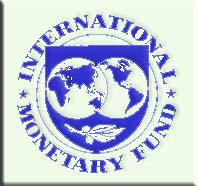IMF warns of "sharp downturn" in US from financial crisis
 Washington - The International Monetary Fund Thursday said there was a "substantial likelihood" that the United States will face a "sharp slowdown" in growth as a result of one of the most widespread financial crises ever to hit a country.
Washington - The International Monetary Fund Thursday said there was a "substantial likelihood" that the United States will face a "sharp slowdown" in growth as a result of one of the most widespread financial crises ever to hit a country.
The IMF warned that the US crisis appeared to have all the hallmarks of the worst and longest financial debacles in history. The deepest recessions are led by turmoil in the banking sector and begin with a run-up in housing prices and an over-reliance on credit to fuel the economy - all true in the United States.
"Based on a comparison of the current episode of financial stress to previous episodes, there remains a substantial likelihood of a sharp downturn in the United States," the IMF said, according to excerpts of its World Economic Outlook report due out next week.
The IMF analysis found 113 cases of financial stress in 17 industrial nations over the last 30 years. Only about half have sparked recessions in the wider economy, but the data suggests that banking-related recessions can be 2-3 times as severe and last 2-4 times as long as a typical downturn in a country.
A collapse in housing prices has been at the heart of the US credit crisis, sparking record foreclosures and decimating the balance sheets of financial institutions holding mortgage-related assets.
"The size of financial imbalances in the household sector is crucial in determining whether the downturn will evolve into a recession," said Subir Lall, deputy division chief of the IMF's Research Department.
The IMF report made no specific mention of the 700-billion-dollar rescue package that was approved by the US Senate Wednesday night. The legislation is expected to come to another vote Friday in the lower House of Representatives, which just rejected an earlier version of the bill on Monday.
For poorer countries, the IMF warned that high food and fuel prices were likely to be a permanent fact of life despite some drops in the past month. Many developing nations should raise interest rates to combat higher inflation that has come with the rise.
A surge in the past few years in food, fuel and metals prices, which has sparked rioting in a number of poorer countries, is the "broadest and most sustained commodity price boom since the early 1970s," the IMF said.
The global lender also warned many Eastern European countries were running prolonged and substantial trade deficits that could set them up for a "hard landings" in the future without solid fiscal policies and oversight.
Foreign companies and banks have swooped in as emerging European economies have eased restrictions on the finance sector. Much of Asia's markets by contrast have remained less open, allowing them to continue running strong current account surpluses.
The IMF, an emergency lender that gauges financial and economic health around the world, will be releasing a series of reports ahead of its annual autumn board meeting on October 11. (dpa)